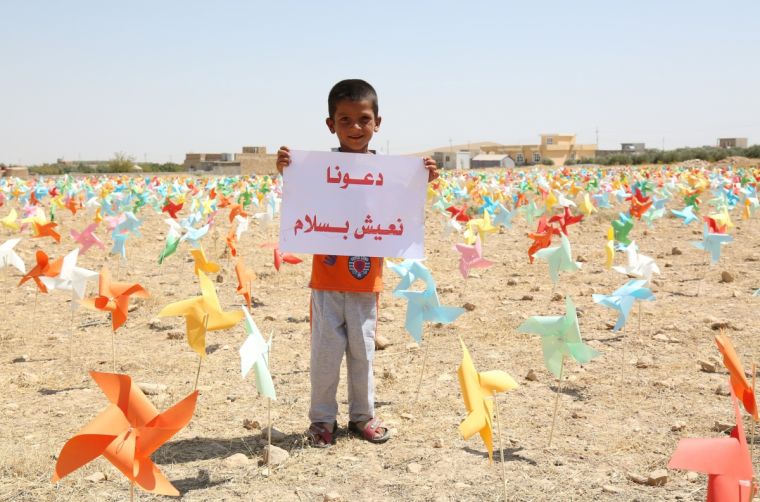The Torture, Murder And Sexual Enslavement Of The Yazidis. Why Won't The British Government Do More To Help?

The Yazidi community in Iraq is still at risk of being wiped out forever even though Islamic State is now in retreat, the UK government has been warned.
MPs and members of the House of Lords urged government to stop the genoice of Yazidi women and girls and to offer temporary safety to 2,000 female survivors of IS atrocities.
A meeting at the House of Lords chaired by Stella Creasy MP and organised by UK Support Yazidi Women and Girls heard that persecution, rape and murder by extremists is something the community has endured for centuries.
More than 270,000 have signed a petition set up to persuade the UK Government to act, more than 3,000 Yazidi women and girls have been kidnapped by IS in Northern Iraq. The women and children have been raped and tortured by their captors.

Three survivors spoke at the meeting in London and described how Yazidi women and girls as young as nine and ten have been repeatedly raped, tortured and sold as sex slaves at market by ISIS militants.
Some have been able to escape but are now living in unsafe camps and remain deeply traumatised.
Many boys, some as young as seven, have been kidnapped and forcefully trained to fight for IS or to become suicide bombers.
Babies have been beheaded and men shot dead.
MPs and peers in the house of Lords have called for the Government to take action but nothing has happened.
Rozin Hanjool, a Yazidi-British campaigner, said: "We're a small, peaceful community and have been persecuted for centuries. I came to this country when I was ten years old because it became too dangerous for me and my family to stay there."
She had to stop speaking as she was overcome by emotion.
"Most of you are very aware about what is happening to the Yazidi community. When IS attacked my people they gave them two choices; to convert or die."
She began to cry.
"They took girls. When I say girls I mean girls as young as nine, girls as young as nine and ten who became pregnant, just children. Boys were taken by IS to be brainwashed and trained as terrorists."
Vanessa Altin, journalist and author of The Pomegranate Tree, a novel for young adults about the Syrian war, described meeting Khalef, aged six, in the Turkish border town of Suruc. He didn't speak.
"His mum told me that he hadn't spoken since the day IS came to their village. They were Yazidis. His brothers and boy cousins were separated from the women – young, even by brutal IS standards, Khalef was taken for trying to defend his mum and biting one of the jihadis on the hand.
"He and his brothers and cousins were stripped to their pants. They were lined up infront of an open grave. The men and boys were shot in the back of the head. As the gunmen opened fire Khalef's 14-year-old cousin pulled the little boy in front of him.
"No-one noticed as the lifeless bodies toppled into the grave. Khalef lay, paralysed with fear and the congealed blood of his cousin for several hours as the murderers continued their execution spree before rounding up the 'prettier' girls and taking them as slaves.
"Silan wept as she told me of her relief at discovering Khalef was still alive. They fled with others to Mount Sinjar – walking then waiting for days for rescue. There was no going home for these people. Mainly women, mostly old. It was August 2014, temperatures soared into the 40's – they had no water, let alone food. 'We drank our own urine,' Silan told me. But her baby daughter Beritan wouldn't swallow it – she died."
Edward Watts, producer and director of Channel 4's Escape from ISIS, told the meeting he had been to Gaza, Congo, Pakistan and Yemen the impact on him of the stories of violence, particularly sexual violence, against Yazidi women, was greater than anything he had experienced.
The German state of Baden Wuerttemberg has agreed to take 1100 female survivors.
Sally Becker, founder of the British charity Road to Peace, said she had been told the chidren cannot be helped because they are not classed as refugees.
"By refusing to help, the message that the British Government is sending to these very vulnerable women and children is that we simply don't care."











